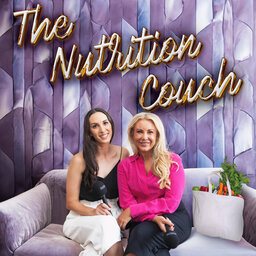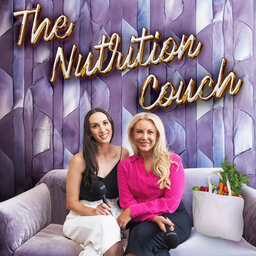How Many Calories Do You Need Each Day. Using Ozempic to Support Weight Loss. What to Eat Before a Long Run.
From Leanne and Susie on The Nutrition Couch this episode:
- We discuss why (despite what the celebrities are saying) you definitely should eat more than 600 calories each day;
- We also look at how to use Ozempic to support weight loss;
- Our listener question is about what to eat on long runs or when prepping for a marathon.
So sit back, relax and enjoy this week’s episode!
Tune in on Wednesday for your mid-week motivation.
Don't Miss an Episode
Don’t forget to subscribe to the podcast so you never miss an episode and follow us on social media @the_nutrition_couch_podcast to ask us questions & see our food product reviews.
It would mean the world to us if you could leave us a 5 star review in the purple Apple podcast app (scroll to the bottom of the app to find the ratings and reviews) as this really helps push up higher in the charts to expose our podcast to more ears.
Please follow Susie on her Instagram & Facebook and Leanne on her Instagram, TikTok and the Leanne Ward Nutrition Podcast.
 The Nutrition Couch
The Nutrition Couch


